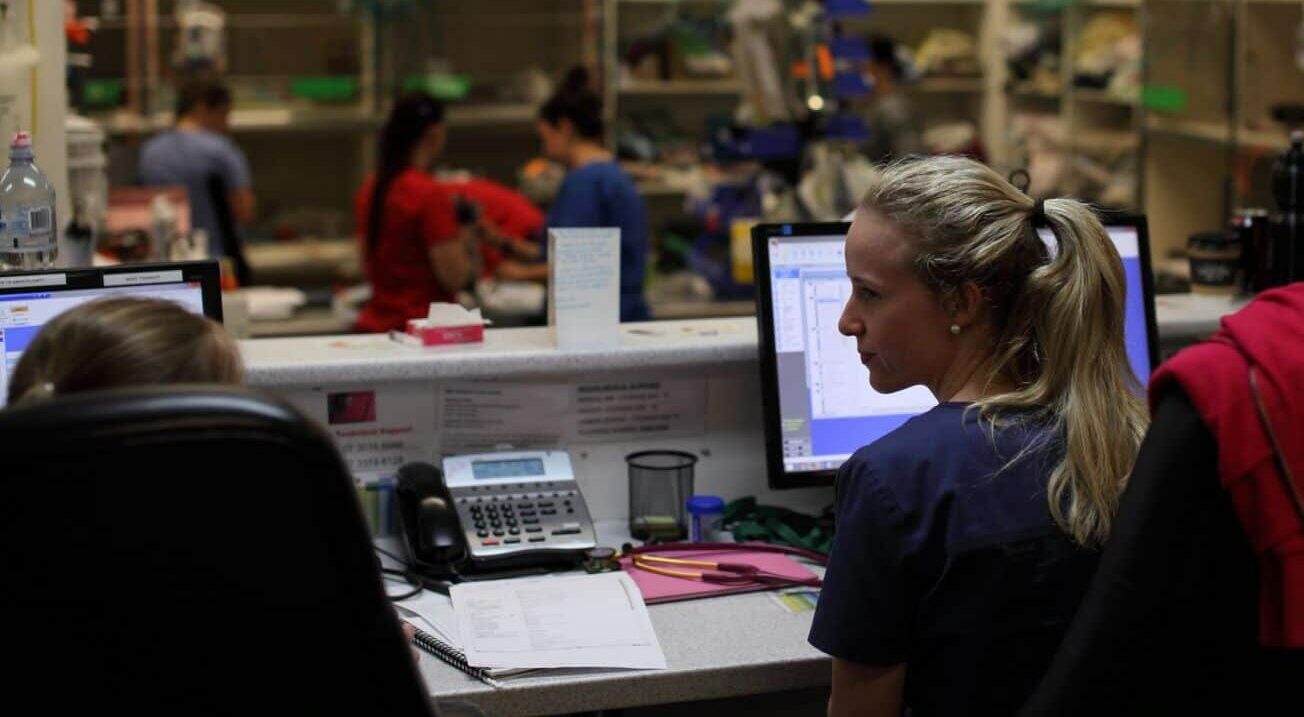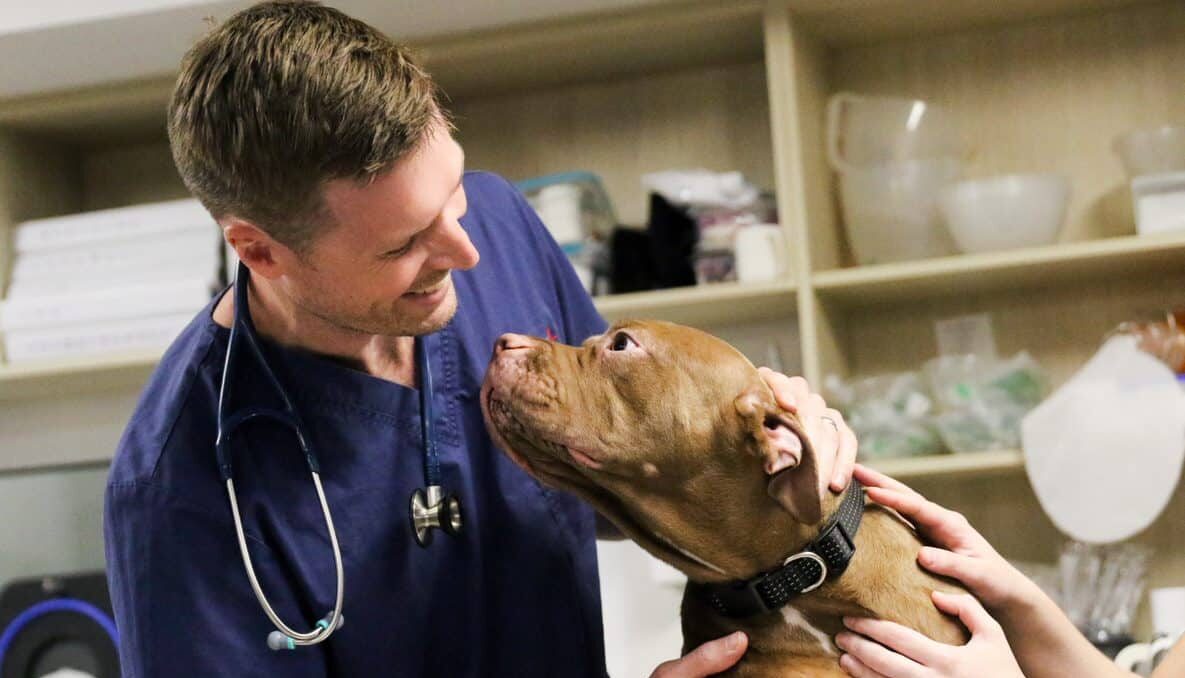What are your veterinary goals for 2024? Read our article and discover how to create, follow, and achieve your new year veterinary goals. The post Setting New Year Veterinary Goals appeared first on Animal Emergency Australia.
As we enter yet another exciting new year, it’s that time once again where we see many new year’s resolutions start to appear. It’s only natural to set goals for yourself – having something to work towards can be the perfect motivator. The start of a new year can be the ideal time to create your goals! And although made with good intentions, broad goals like “eat healthier”, “get more exercise”, or “see family more” can sometimes be difficult to achieve. It’s certainly a challenge to form habits and stick to a specific resolution for 365 days straight! But have you ever considered your new year veterinary goals?
Has there ever been a year you’ve set yourself a veterinary-related new year’s resolution? Maybe you wanted to learn new surgical techniques, develop additional diagnostic skills, or set aside more time for study? Did you follow through with the goal, or did your focus on clinical practice get in the way of succeeding? With our busy veterinary lives and our focus on patient care, it can be easy for our goals to fall to the wayside.

Creating Your Veterinary Goals
At Animal Emergency Australia, we’ve been setting and achieving veterinary goals for many years. We want to help you set and achieve your veterinary goals to become a more skilled and balanced veterinary professional. And while it may sound cliche, it all starts with setting yourself “SMART” goals, a methodology many of us are already familiar with. Without framing your goals around this structure, you may inadvertently be making them harder to achieve.
So what should you first consider when creating your veterinary goal? To give yourself the best possible chance of success, your goals should be:
Specific – what will be accomplished and how will you work towards it? E.g., Learning ultrasound by completing a training course. Measurable – is there a way to measure your progress towards the goal? E.g., Performing abdominal ultrasound on 30 patients. Achievable – keep it reasonable and realistic! Don’t set yourself goals that are already too difficult to achieve. Ensure you have the necessary means and resources. Relevant – does this goal align with your overall veterinary direction? Think about a 5 or 10 year plan and how this goal will help you progress. Timely – what is the timeframe for completion of the goal? Give yourself enough time, set aside time, and don’t rush yourself.So putting together all of these individual pieces, a SMART veterinary goal for the new year might look something like:

And when you think about it, there are a variety of categories that we can focus on when setting veterinary goals. Admittedly, as veterinarians, many of us have the tendency to hone in on the technical and clinical. After all, it’s only natural to want to upskill our theoretical knowledge and practical skills to enhance patient care.
And although clinical skills are certainly an area of importance, there’s far more to veterinary practice and to a balanced life than putting your entire focus on clinical advancement. Next, we’ll talk about each of these categories in further detail, and how you can apply them to your own veterinary goals:
Personal Veterinary Goals
It might not come naturally for all veterinary professionals, but personal wellbeing should take priority above all else. For without focus on your own personal goals, your ability to focus on other areas of your life can be made immediately more difficult. So what exactly do we mean when we say setting yourself “personal goals”?
Simply put, these are the key elements of your lifestyle – the foundation on which the rest of our veterinary lives rely. Underlying fundamentals of life are all too often overlooked, but without them we can’t possibly perform to our full potential.
So when creating your own personal goals, try building them around these three categories:
Sleep – get an average 8 hours of sleep each night for 1 month Exercise – start implementing a workplace fitness program Diet – take time to eat a balanced lunch every day while at workWhile many personal goals might just seem like common sense, being able to set and track them will give you the ability to see the positive impact they’re having on other areas of your life.
Don’t overlook the impact that these areas of you life can have on your veterinary performance!

Professional Veterinary Goals
Being a successful veterinary professional involves far more than just knowing how to diagnose and treat our patients. There are numerous professional skills we use every single day, particularly when communicating with clients in a clinical environment. The consultation room is where everything is decided and you want to be prepared for any conversation. With the right professional skills up your sleeve, you can ensure it all goes as smoothly as possible.

So what professional goals can you set to ensure this? This could involve enrolling and completing a professional development program. These provide structured resources from experienced veterinary professionals designed to boost your own professional skills. Alternatively, it could be as simple as making small changes at work centred around professionalism and communication. Try setting yourself goals around having more open discussions with colleagues around tough consultations, or being more open and honest about moments of imposter syndrome.
Clinical Veterinary Goals
This is the big one for many of us! A new year means new opportunities to advance our clinical skills, sign up to a course to acquire new techniques, and keep up with the latest developments in veterinary medicine. And as this is the focus for many veterinary professionals, there’s a wealth of information readily available to help you achieve your clinical goals.

So whether you’re eager to take on more advanced surgery, want to explore exciting emergency skills, or to become the best in your field, here are a few handy resources to help you achieve those goals:
VetAPedia – this 100% free clinical resource offers hundreds of clinical resources centred around emergency and critical care. Tune into emergency webinars, explore the comprehensive list of emergency protocols, and rapidly advance your ECC skills. Improve International – one of the leading providers in veterinary clinical courses, ranging from topics like small animal medicine and surgery through to specific fields including cardiology, dermatology, and even oncology. Animal Emergency Australia Clinical Events – throughout the year, our clinical teams at AEA host a variety of events aimed at sharing the latest clinical knowledge with all veterinary professionals. Keep an eye on our events calendar and join us for any of our future panels, seminars, and journal clubs.These are just a few of the readily-available resources to help you accomplish your clinical goals for 2023. Regardless of the clinical topic you’re aiming to pursue, there will always be a huge range of resources available online or in-person at your disposal.
Educational Veterinary Goals
Now some of you might be wondering – “educational goals? Aren’t these just the same as clinical goals?” Well if you’re thinking that, you’re certainly not wrong. Your clinical goals may very well be an important part of your educational goals – but we’re confident that many of your educational goals extend far beyond the clinic! There’s a whole world of knowledge to learn outside of veterinary practice that can be brought back to provide value to our profession.

Many of us are not only veterinarians, but also key players in running veterinary businesses, and so any education that can assist us in doing this more effectively can be of value. When considering your veterinary educational goals, be sure to think outside of the clinical box. Could you undertake a business course to bolster your financial knowledge? Or maybe even upskill through training in web development or marketing to get your veterinary business in front of more clients? Or perhaps you even want to help teach the next generation of veterinary professionals? The possibilities for educational goals are endless!
Social Veterinary Goals
Lastly, this is a goal category that simply cannot be ignored. Having a healthy social life is essential for the mental health and wellbeing of all veterinary professionals. Without taking regular time to socialise, relax, and enjoy the company of family and friends, we run the risk of our burnout and our clinical performance being compromised.
So this year, ensure you incorporate several social goals and set aside time, whether it be weeks, days, or even hours, that are purely dedicated to your social wellbeing. Catch up with colleagues, old friends from throughout your studies, and consider joining a social group for hobby you’re passionate about.
Final Tips for Achieving Veterinary Goals
To wrap things up, we’ve got three final tips to help you achieve your veterinary goals. as you’re working towards your veterinary goals during the year, consider these three points along the way:
1. Break Down Bigger Goals Into Smaller Goals
A big goal can be daunting! And without knowing exactly where to start, you might even be hesitant to start at all. So rather than tackling one monumental goal over the year, see if there’s a way to split that larger goal into smaller, more approachable pieces.
Focus on one smaller goal each month, a bigger goal each quarter, all of which contribute to one overall goal for the year. By breaking down your goal into smaller, more achievable chunks, you’ll be much more likely to achieve them.

2. Build Habits Through Persistence
Commiting to a goal isn’t always easy, particularly if it’s something you might not already have done as part of your normal veterinary life. And if your goal involves daily or weekly tasks, the key to making it a habit is through persistence. After all, studies have shown that on average it takes on average 66 days to effectively form a habit! That’s quite a bit of persistence.
For example, you may want to read 3 new veterinary journal articles each week to advance your clinical knowledge. Initially, this might seem quite jarring and hard to fit into an already busy schedule, but with enough persistence it will eventually become a habitual part of your routine and come effortlessly. That initial transition period may be tricky, but stick with it and you’ll succeed.

3. Setting Aside Time for Goals
We could all do with more time in our schedules. Instead, we should try to find ways to make time for our goals. Prioritise even just an hour each week that is entirely dedicated to the veterinary goals you’ve set for yourself. Any time at all is better than none!
Keep your goal time consistent too – decide on a set day and time every week with no other distractions. See what you can accomplish in that hour and keep track of it. Even just an hour each week over the course of a year is over 50 hours, which in total can be a considerable amount of time to put towards a goal.
So what are your veterinary goals for 2024? We’d love to hear from you! Reach out and share them with us here and explore our other resources that can help you achieve your veterinary goals including guides for making time for CPD and achieving work-life balance as a veterinary professional.
The post Setting New Year Veterinary Goals appeared first on Animal Emergency Australia.


